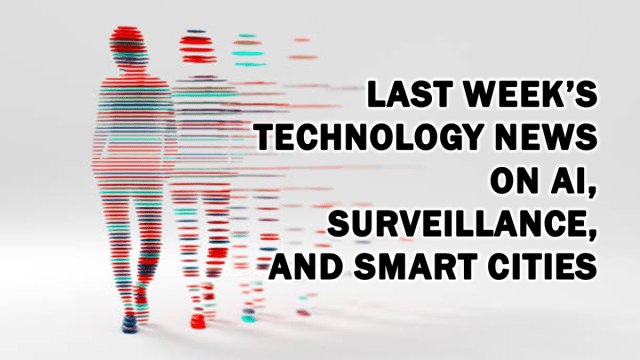Below is a quick look at selected articles published by the Massachusetts Institute of Technology’s (“MIT’s”) Technology last week. But first, we draw attention to an MIT Technology Review article published in February 2020 which highlights “emotion AI” and that the lack of government regulation isn’t just bad for consumers but it’s bad for the field as well.
Emotion AI researchers say overblown claims give their work a bad name
A lack of government regulation isn’t just bad for consumers. It’s bad for the field, too.
Perhaps you’ve heard of AI conducting interviews. Or maybe you’ve been interviewed by one yourself. Companies like HireVue claim their software can analyse video interviews to figure out a candidate’s “employability score.”
The algorithms don’t just evaluate face and body posture for appearance; they also tell employers whether the interviewee is tenacious, or good at working on a team. These assessments could have a big effect on a candidate’s future. In the US and South Korea, where AI-assisted hiring has grown increasingly popular, career consultants now train new grads and job seekers on how to interview with an algorithm.
This technology is also being deployed on kids in classrooms and has been used in studies to detect deception in courtroom videos.
But many of these promises are unsupported by scientific consensus. There are no strong, peer-reviewed studies proving that analysing body posture or facial expressions can help pick the best workers or students (in part because companies are secretive about their methods).
As a result, the hype around emotion recognition, which is projected to be a $25 billion market by 2023, has created a backlash from tech ethicists and activists who fear that the technology could raise the same kinds of discrimination problems as predictive sentencing or housing algorithms for landlords deciding whom to rent to.
Read the full story HERE.
The world’s biggest surveillance company you’ve never heard of
What’s next for Hikvision, the world’s largest surveillance company, as it faces being placed on a US blacklist.
You may never have heard of Hikvision, but chances are you’ve already been captured by one of its millions of cameras. The Chinese company’s products can be found anywhere from police surveillance systems to baby monitors in more than 190 countries. Its ability to make decent-quality products at cheap prices (as well as its ties with the Chinese state) has helped make Hikvision the largest manufacturer of video surveillance equipment in the world.
But while Hikvision’s close links with the Chinese government have helped it grow, these links may now be its undoing. The firm has helped build China’s massive police surveillance system and tailored it to oppress the Muslim minority groups in Xinjiang. As a result, the US government has imposed several sanctions on it in the last three years. This year, the US Treasury is reportedly considering adding Hikvision to the Specially Designated Nationals and Blocked Persons (SDN) List, usually reserved for countries like North Korea or Iran.
Here’s everything you should know about Hikvision: a firm that used to fly under the radar but now faces becoming the most sanctioned tech company in the world.
Read the full story HERE.
Yann LeCun has a bold new vision for the future of AI
The godfather of AI, Yann LeCun, wants to give machines the common sense required to navigate the world – he just needs to work out how to do it.
Around a year and a half ago, Yann LeCun realised he had it wrong.
LeCun, who is chief scientist at Meta’s AI lab and one of the most influential AI researchers in the world, had been trying to give machines a basic grasp of how the world works – a kind of common sense – by training neural networks to predict what was going to happen next in video clips of everyday events. But guessing future frames of a video pixel by pixel was just too complex. He hit a wall.
Now, after months of figuring out what was missing, he has a bold new vision for the next generation of AI.
In a draft document shared with MIT Technology Review, LeCun sketches out an approach that he thinks will one day give machines the common sense they need to navigate the world.
For LeCun, the proposals could be the first steps on a path to building machines with the ability to reason and plan like humans – what many call artificial general intelligence or AGI.
His vision is far from being comprehensive; indeed, it may raise more questions than it answers. The biggest question mark, as LeCun points out himself, is that he does not know how to build what he describes.
Read the full story HERE.
The smart city is a perpetually unrealised utopia
Urban technologies were meant to connect, protect, and enhance the lives of citizens. What happened?
In a new essay, Chris Salter, an artist and professor of immersive arts at the Zurich University of the Arts, talks about how the concept of the smart city has always changed through the decades. In it, he also asks what role people should play in future cities. He writes:
“When we assume that data is more important than the people who created it, we reduce the scope and potential of what diverse human bodies can bring to the ‘smart city’ of the present and future. But the real ‘smart’ city consists not only of commodity flows and information networks generating revenue streams for the likes of Cisco or Amazon.
“The smartness comes from the diverse human bodies of different genders, cultures, and classes whose rich, complex, and even fragile identities ultimately make the city what it is.”
Read the full essay HERE.
Source Link: https://expose-news.com/2022/06/25/technology-news-on-ai-surveillance-and-smart-cities/
Bitchute: https://www.bitchute.com/channel/YBM3rvf5ydDM/
Telegram: https://t.me/Hopegirl587
EMF Protection Products: www.ftwproject.com
QEG Clean Energy Academy: www.cleanenergyacademy.com
Forbidden Tech Book: www.forbiddentech.website













